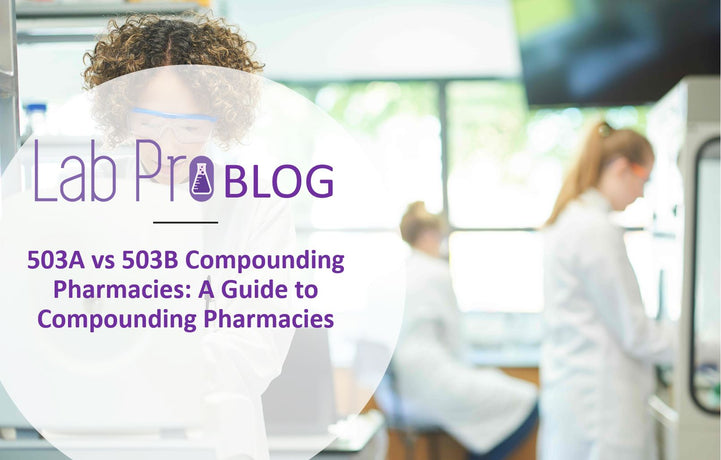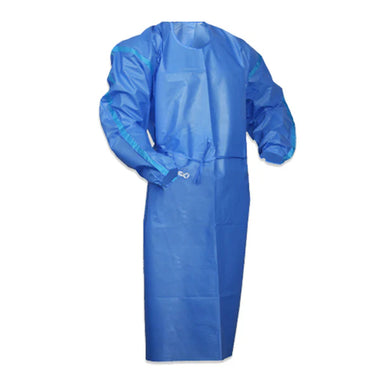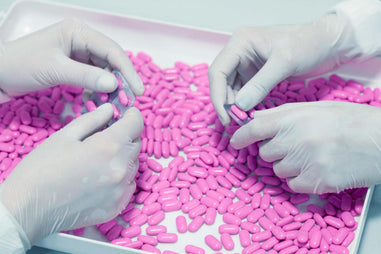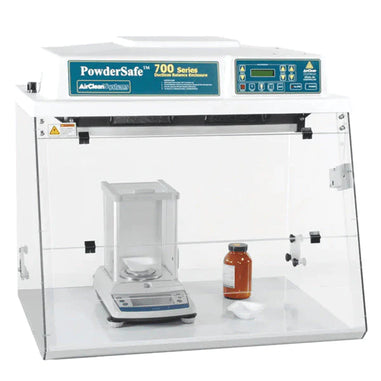- No products in the cart.
You’re probably familiar with traditional pharmacies such as community and hospital pharmacies, but there is also another type of pharmacy known as a compounding pharmacy. Compounding pharmacies offer specialized services that the other pharmacies don’t provide.
Compounding pharmacies make customized medications for people and even animals who have unique medication requirements or needs. These medications are ones that patients typically can’t take the commercial form of due to rare diseases, dosing requirements, or allergies. Compounding facilities cater to a diverse patient population.
These pharmacies make two types of compounds. These two types include sterile and non-sterile compounds. Sterile compounds are made in a controlled environment to minimize the risk of infections due to contaminants. Sterile compounds include infusions, eye drops, and injections. Non-sterile compounds include suppositories, capsules, and creams.

There are also two categories of compounding pharmacies. These two types are 503A and 503B compounding pharmacies. Compound pharmacies have been divided into two categories as a result of the government enacting new legislation.
New legislation was required as the demand for specialized drugs by consumers has been on the increase. The struggle to keep up with demand led to an increase in incidences of contamination. Therefore, tighter regulation was needed to ensure effectiveness and safety while scaling up production.
We’ll discuss these two types of compounding pharmacies and their differences.
What is a 503A compounding pharmacy?
A 503A compounding pharmacy is one that supplies sterile medications according to prescriptions that are specific to certain patients. This particular pharmacy is required by the state board of pharmacy to comply with the guidelines set forth by the USP and are designated by the FDA only for home use.
Since the medications are customized, they are not produced in large quantities. This makes the medication more costly which is ultimately passed on to the patient making some of these medications cost-prohibitive.
503A pharmacies are required to register with their state boards of pharmacy and the Drug Enforcement Administration, however, they are not required to register with the FDA. They must comply with USP requirements 795 and 797, perform environmental inspections on a 6 month basis, and execute Beyond Use Dating.
What is a 503B outsourcing facility?
The 503B pharmacies or outsourcing facilities provide large batches of medication for physicians’ offices, healthcare systems, ambulatory surgery facilities and they can also fill patient-specific prescriptions. The production of larger batches meets the consumers demands quickly, while ensuring the safety of patients and lowering the cost of the medication for consumers. 503B facilities are able to produce compounded sterile preparations to a wide population of patients.
Section 503B is a result of The Drug Quality and Security Act of 2013 to provide effective, stable, and safe standards for compounded medications that are not available commercially. Since sterile and non-sterile medications can be produced in mass at this facility, regulations are more comprehensive. These facilities must comply with the FDA, DEA, and the state boards of pharmacy.
What is the difference between 503A and 503B pharmacies?
Both 503A and 503B pharmacies must comply with USP 795 and 797, as well as the state boards of pharmacy. However, the 503B outsourcing facilities, due to their wider range of medications, must comply with much stricter regulations and are held to higher standards than the 503A to ensure the safety and quality of medications on a larger scale.
503A pharmacies are not required to comply with Current Good Manufacturing Practices meaning that the regulations are not as extensive when it comes to integrity, potency, or stability. As a result, potential problems sometimes arise in the reliability and effectiveness of the compounds.
503B compounding pharmacies must be in full compliance with CGMP or Current Good Manufacturing Practices. This means that quality assurance is built into the life cycle of the product development of the drug all the way from the raw materials to administering it to the patient.
It also takes longer for new products to reach the market in 503B facilities because new products must be produced in batches and submitted for testing before it reaches the market.
503A pharmacies provide individual drug products prescribed by physicians that are for home use only while 503B are provided for hospitals, surgery centers, and healthcare systems.
Lab Pro offers a large variety of supplies for compounding pharmacies. For over 40 years, Lab Pro Inc. has been committed to delivering the highest quality hand tools, chemicals, lab equipment, distance learning kits, lab supplies, and cleanroom PPE apparel to medical device companies and laboratories worldwide. To learn more, visit the biggest Lab Supply showroom in California, or contact us online or at 888-452-2776.












































